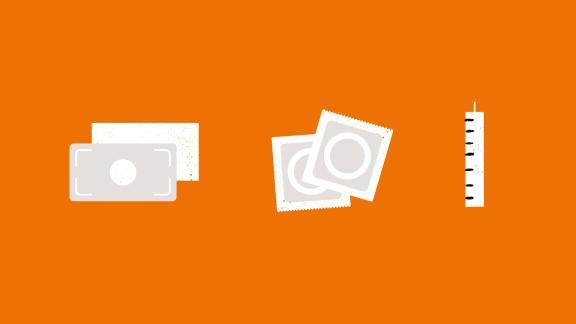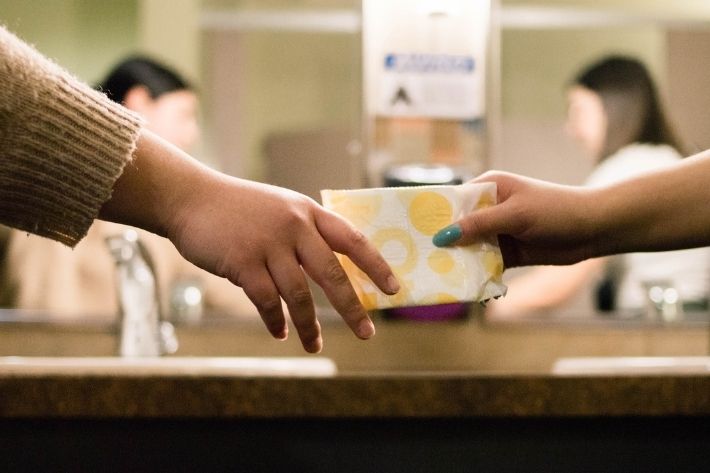Whether you’re considering preventing an unintended pregnancy, or thinking about fertility care, contraception is an important topic for many people.
While wanting to have children may be an important step of your life, not wanting to get pregnant right now, or ever, may be equally important. When it comes to deciding how many children to have, when to have them, or whether to have them at all, it is up to you (and your partner) to decide.
Being in control of your own fertility is an act of empowerment. It enables you to understand and choose what works best for your life plans and overall health. In this blog, we will explore how you can self-manage both contraception and fertility.
What contraception should I use?
If you are sexually active and not currently planning a pregnancy, are you using contraception? You may have had this discussion with your partner or friends. Some might be using natural methods, such as fertility awareness or withdrawal, while others prefer methods such as the IUD implant, injectables, condoms, or the pill. Everyone’s body and preferences are different, so it is very important that you choose a method that best fits your lifestyle.
With the help of quality resources and guidelines, you can learn more about each option and choose what you feel most comfortable with. Among the many options are three kinds of popular contraceptives that you can easily manage by yourself: condoms, the oral contraceptive pill, and the self-administered injectable contraception. You may prefer a natural method such as withdrawal. Practiced consistently and correctly this method is hormone-free but does not protect against HIV and STIs.
Condoms
Condoms are very popular and are the only contraceptives that protect against HIV and STIs. You can choose the external or internal condom based on your body and the sexual activity you want to have. While hormone-free they can tear if not used correctly. They are widely available in most pharmacies and supermarkets and are also easy to use once you get the hang of them.
The Pill
The oral contraceptive pill (often referred to as "the Pill") is another very well-known method of contraception. Taken daily, both the combined oral contraceptive pills and the progestogen-only pills are very easy to use, and safe for you to self-manage. Usually, you can get them at your local pharmacy with a prescription, or at a health facility. In some countries, the Pill may also be available online. Ideally, clinics and pharmacies should be able to give you a supply to use over the course of several months, meaning you can enjoy the benefits of taking the Pill without needing to visit a pharmacy or clinic too frequently. The Pill is a highly effective method and can even reduce painful and heavy periods, however it may cause headaches and mood swings and you need to remember when you’re supposed to take it.
Sayana Press (DMPA-SC)
In recent years, a new method called the self-injectable DMPA-SC contraceptive (more commonly known by its brand name, Sayana Press) has become popular. DMPA-SC is a pre-filled contraceptive device that can be self-injected beneath the skin in your thigh or abdomen. It only needs to be administered once every 3 months, so DMPA-SC could be a great option for you if you don’t want to think about contraceptives every day. It is very easy to use and highly effective.
Emergency contraception
You may also be aware of the emergency contraceptive pill. This is different from the daily use contraceptive pill – it is only used when you have unprotected sex or your contraception has failed (such as a condom that has broken or come off during sex), and you want to avoid pregnancy. They are not intended to be used on an ongoing basis, and do not offer protection against HIV and STIs. So, consider other options if longer-term contraception methods might suit you better.
Considering contraceptive self-care is a great option for you to prevent a pregnancy as well as HIV and STI transmission, while helping you to take control of your body.
Fertility care
If you are actively trying to get pregnant, it is helpful for you to know when you (and your partner) are more likely to conceive. One of the most important things that you need to be aware of is how the menstrual cycle works and when ovulation occurs. Using a calendar to monitor your cycle can be very helpful. Helpful resources that you can use at home are online/mobile apps or ovulation predictor kits (OPKs).
OPKs can identify hormone changes which can help you predict the time of your upcoming ovulation. The point of identifying ovulation is so that you can time vaginal intercourse to occur during the same timeframe. The OPK is a great tool that monitors your reproductive cycle and fertile windows. They are convenient, accurate, and very easy to use as they are usually urine or saliva based. In many countries, OPKs are widely available in pharmacies, supermarkets, shops, and online and you will not need a prescription to purchase them.
when










